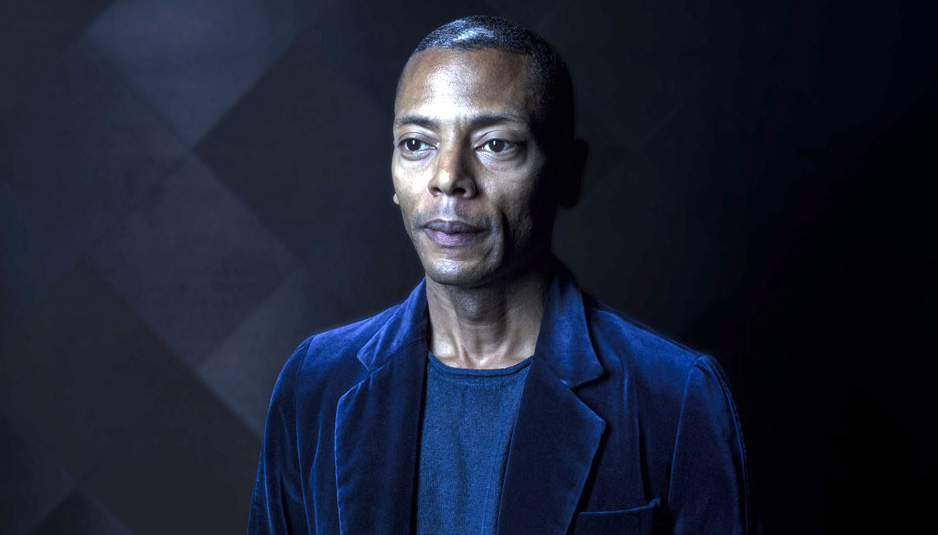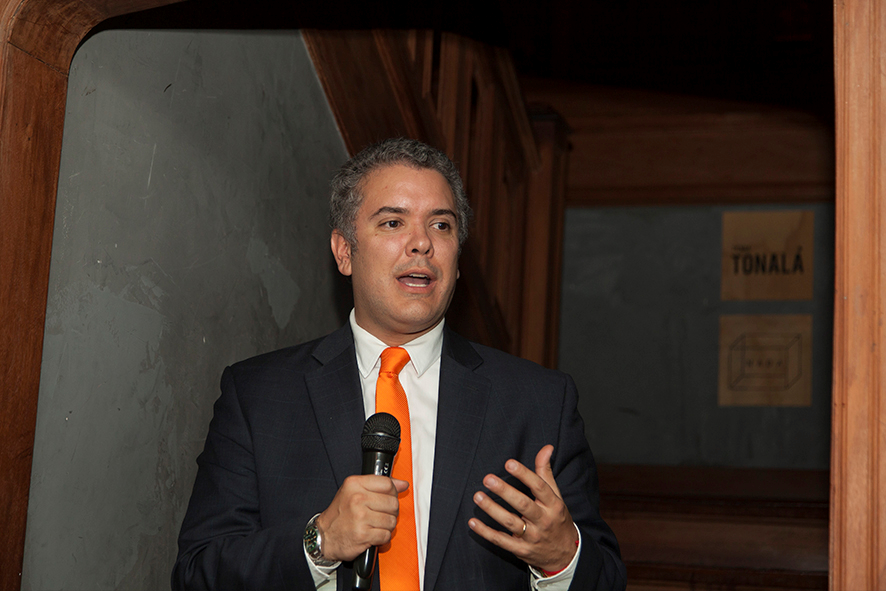
Bringing the testimonies of the Commissions alive through puppetry Photo: Handspring Puppet Company
We speak to Jane Taylor, author of Ubu and the Truth Commission, about her work, the various groups she´s worked with and presented to during her stay in Bogota and about the role that art can play in societies dealing with conflict and violence
In the late 1990s, against a backdrop of post-apartheid South Africa, Ubu and the Truth Commission was conceived by Jane Taylor, alongside the Handspring Puppet Company under the direction of William Kentridge (South African born artist and director).
The widely acclaimed play has since been performed throughout the world and its five performances in Bogotá’s theatre festival were all sold out.
In writing the play, Jane Taylor used excerpts of testimonies from witnesses at the South African Truth and Reconciliation Commission as well as drawing on ´Ubu Roi´, a burlesque character created in 1888 by French playwright Alfred Jarry, satirising power, greed and evil practices.
Kentridge had already been collaborating with the Handspring Puppet Company for some time, combining his artistic aesthetic and experience with animation and puppetry. In addition to the play, his exhibition, Fortuna will be on show at the Museo de Arte del Banco de la República until July 7.
The South African Truth and Reconciliation Commission was set up in 1995 to record and bear witness to the human rights violations that took place during apartheid, as well as offering repatriation, rehabilitation and in some cases granting amnesty to the perpetrators of crimes.
Anybody who felt they had been a victim of violence could come forward – the Commission took testimony from over 21,000 victims, with many sessions broadcast on television.
Speaking at the Tadeo, Kentridge commented on the Truth Commission´s pioneering approach: “The Truth Commissions were in every newspaper and television broadcast for the best part of three years at that time”.
However, the commission faced a number of challenges. “At one point, the perception was that the translators were too wooden…and didn´t convey the suffering in the witness´ testimony. So then the translators were told that, if the witness wept, they had to weep too. But the problem was that the translators were terrible actors, so the commissions themselves began to turn into a type of theatre”.
Using puppetry with such a sensitive subject matter was taking a risk. However, Jane describes how the approach of handling actual testimonies via the puppets was advantageous “Puppetry is an extraordinary medium, and it was very useful for us for the Truth Commission, because we could then tell people’s stories through the medium of the puppet, and the puppet could speak on behalf of someone without owning their story, so it’s a very good medium for exploring stories which are in the public domain”.
During her stay in Colombia, Jane has participated in workshops and talks with a range of groups. The workshops have been very rewarding, and she comments, “We’ve worked over the last two days with paper puppets in which people have learnt how to make an inanimate thing breathe, and so it’s been a very powerful experience, because people are learning how to bring life to objects”.
It is impossible to ignore the relationship between the post-apartheid truth and reconciliation in South Africa and the ongoing conflict here in Colombia. However, the South African Truth Commissions were held in a very different context, and William states “There was limited scope for using witness testimony in terms of achieving justice in the legal sense of the word.”
Jane elaborates “The Truth Commissions were not a perfect instrument by any means, and there are still people who believe that their human rights have been taken away from them because they were denied access to the law courts; people who were profoundly offended by the fact that their child’s killer would not be prosecuted in legal terms because of the conditions of the truth commissions, so it’s something that has to be negotiated in every context and each particular case”.
In respect to how the groups here in Colombia could interpret reconciliation, it was in some respects easier to take the subject matter from the Truth Commissions than it would be to use the current peace talks in Havana: “The important thing about the South African experience was that the stories were all told in the public arena, and from what I hear the process in Havana is very secretive and a closed doors process. So I think that just becomes about negotiation between power blocks. The only way for citizens of Colombia to own the peace process is to be part of those hearings and part of those conversations”.
The scope for the groups here in Colombia would be to interpret stories on a more personal level, and for this, Jane has high hopes that the work will reflect the characters of the people she has met: “We’ve been welcomed and embraced in such meaningful conversations. They’ve shown tremendous generosity and an astonishing sense of humour. One of the things that has been really surprising over the last two days is the thoughtful seriousness with the jubilant joyfulness [of the people]”.
By Amy Farrell




